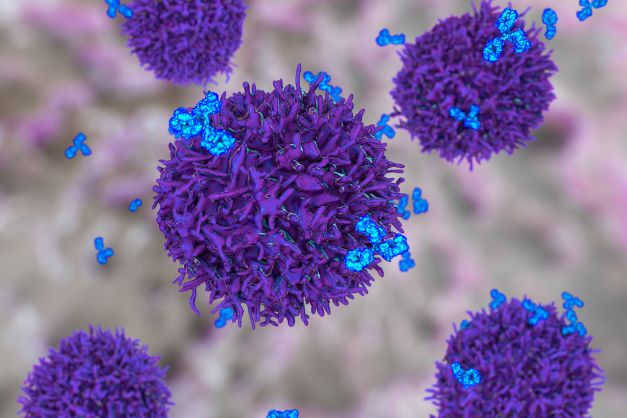Stress is a natural response that occurs when we feel threatened by something that could harm us. It’s an instinctive reaction designed to protect us from danger.
Your nervous system doesn’t care whether a lion is chasing you or your “To-Do List” is too long. The reaction to stress is similar.
And, when stress becomes chronic or overwhelming it can have serious consequences on your physical and mental health. In fact, many studies show that stress has been linked to several serious diseases.
- heart disease
- cancer
- stroke
- diabetes
- depression
- anxiety
- premature aging
Stress affects our bodies in many different ways. One of those ways is through the immune system. There are several ways to determine the effects of stress on the immune system.
When we experience stress, our body releases hormones called glucocorticoids. Glucocorticoids help us deal with stressful situations by suppressing inflammation. They help us cope with pain. They also increase blood pressure, which helps keep us alive during times of high stress.
But when we experience chronic or excessive levels of stress, these hormones become toxic. That means they start affecting other parts of the body besides just keeping us alive.
When this happens, the body starts producing antibodies against itself. These antibodies attack healthy cells and tissues, causing damage. This is why stress causes inflammation. Inflammation is actually a good thing because it helps fight off infections.
Unfortunately, when the body produces too many of these antibodies, it begins attacking its own organs and tissues. This leads to autoimmune diseases like lupus, rheumatoid arthritis, multiple sclerosis, and type 1 diabetes.
Dr. Gala’s Quick Take
Yes, stress weakens your immune system by lowering lymphocyte levels, making you more prone to infections due to reduced defense against antigens. This occurs as stress hormones like cortisol suppress immune function.
Effects of Stress on the Immune System: The Immune System And Chronic Stress
When stress becomes chronic, it takes a toll on your immune system. This is especially true for women who suffer from premenstrual syndrome (PMS). Some researchers believe that stress may be one of the main triggers behind PMS.
Studies have shown that stress increases cortisol production, which can lead to hormone imbalances. Hormone imbalance can cause weight gain, acne, and irregular periods. Other research shows that stress can trigger PMS symptoms by increasing the amount of progesterone in the body. Progesterone is a female sex hormone that regulates menstrual cycles.
A study published in the Journal of Psychosomatic Medicine found that women who experienced chronic stress had higher levels of cortisol (a hormone released by the adrenal gland) in their saliva. Cortisol is known as “the stress hormone” because it increases when we experience stress. The researchers concluded that there might be a link between chronic stress and increased cortisol levels.
Another study found that people who were stressed out had lower numbers of T cells – white blood cells that play a role in fighting infection. Researchers say that low numbers of T cells may be related to a weakened immune system.
Stress causes changes in the brain which result in increased levels of cortisol (the “stress hormone”) in the bloodstream.
Cortisol helps regulate the fight-or-flight response. This response involves releasing glucose into the bloodstream as fuel for the muscles. It also increases the production of adrenaline, a powerful hormone that prepares the body for action. Adrenaline makes the heart beat faster, constricts blood vessels, and raises blood pressure.
When you feel stressed, your adrenal glands release cortisol into the bloodstream. Cortisol stimulates the pituitary gland, located just above the hypothalamus, to increase the secretion of ACTH (adrenocorticotropic hormone). ACTH then travels through the bloodstream to the adrenal cortex where it triggers the release of glucocorticoids.
Glucocorticoids are hormones that stimulate the liver to produce glucose. They also cause the kidneys to retain sodium and water.
This results in weight gain. And, if you don’t lose this excess fluid, it can lead to high blood pressure.
When you’re under stress, your body releases chemicals called cytokines into the bloodstream. These cytokines signal the cells of your immune system to prepare them for action. Cytokines also tell other parts of the body to create proteins that make antibodies, white blood cells, and enzymes.
Antibodies defend against bacteria and viruses. White blood cells destroy invading microorganisms. Enzymes break down foreign substances such as food particles and toxins.
If you’re under constant stress, your body may not be able to keep up with these demands. As a result, your immune system weakens.
It’s like having a car engine running constantly without getting enough gas. Eventually, the engine won’t work properly and you’ll need repairs. Similarly, your immune system needs regular maintenance to function effectively.
In addition to weakening your immune system, stress can have a negative impact on your mood. Chronic stress can trigger feelings of anger, irritability, sadness, fatigue, and frustration. Over time, these emotions can affect your ability to think clearly and make sound decisions.
The effects of stress on the immune system depend on how long you’ve been experiencing it. As you might imagine, short-term stress has less of an effect than chronic stress. When you’re body is constantly feeling stressed, your body is constantly trying to produce more cortisol. After a while, your body gets used to producing higher amounts of cortisol and gets stuck in overdrive.
So if you continue to experience stress over a period of days or weeks, your body will eventually stop responding to the extra cortisol. This means that your immune system will no longer respond well to stress.
What Are Some Common Symptoms Of Stress On The Immune System?
The following list includes some common symptoms of stress on the immune system. Everyone adapts to chronic stress differently. It’s important to recognize how your body shows that stress has become toxic.
- An increased risk of infections
- A weakened immune system
- Fatigue
- Headaches
- Muscle aches
- Nausea
- Poor memory
- Trouble sleeping
- Skin rashes
- Weakness
- Weight loss or gain
- Worsening allergies
How Can I Reduce My Stress Levels?
There are several ways to reduce your stress levels:
One way is by exercising regularly. Exercise helps release endorphins in your brain which reduces stress. It also improves sleep quality and increases energy levels.
Another way to reduce stress is to meditate or practice yoga. Meditation has been shown to lower blood pressure and improve mood. Yoga helps relax muscles and relieve tension.
Finally, and most important, improve your diet. Eating lots of fruits and vegetables will help keep you feeling full and satisfied. Eat foods that have antioxidants in them such as berries, dark green leafy vegetables, beans, nuts, and seeds. These foods contain nutrients like vitamin E, selenium, zinc, magnesium, manganese, copper and folate. Antioxidants may help protect against cancer and other chronic illnesses.
It’s important to reverse the effects of chronic stress before dis-ease escalates to disease. Your immune system provides clues. Symptoms should be addressed … naturally … when they first start to develop.
“If you came into my office, I’d ask you a lot of questions that would help us connect the dots … so that together we can deal with your toxic stress. Every situation is unique and you need a plan that works for you. Not a one-size-fits-all solution.
If you’re thinking you can’t come into my office, don’t worry. I’ve put all of my initial questions together in a quiz.
So if you’re thinking that managing chronic stress just isn’t possible … or even the answer … for you, I want to show you what you may be missing. And how you can identify the toxic stressors that are creating your symptoms with my free quiz. You can get started HERE.” – Dr. Gala





